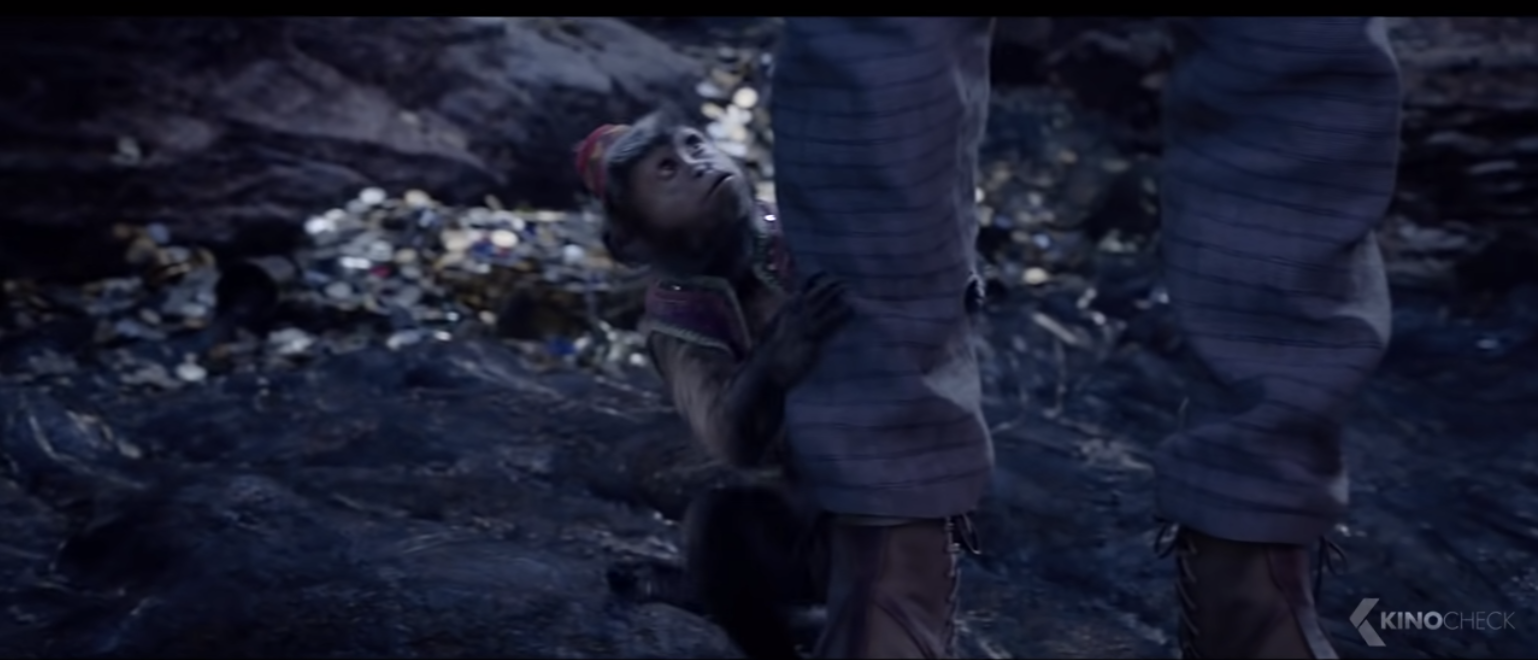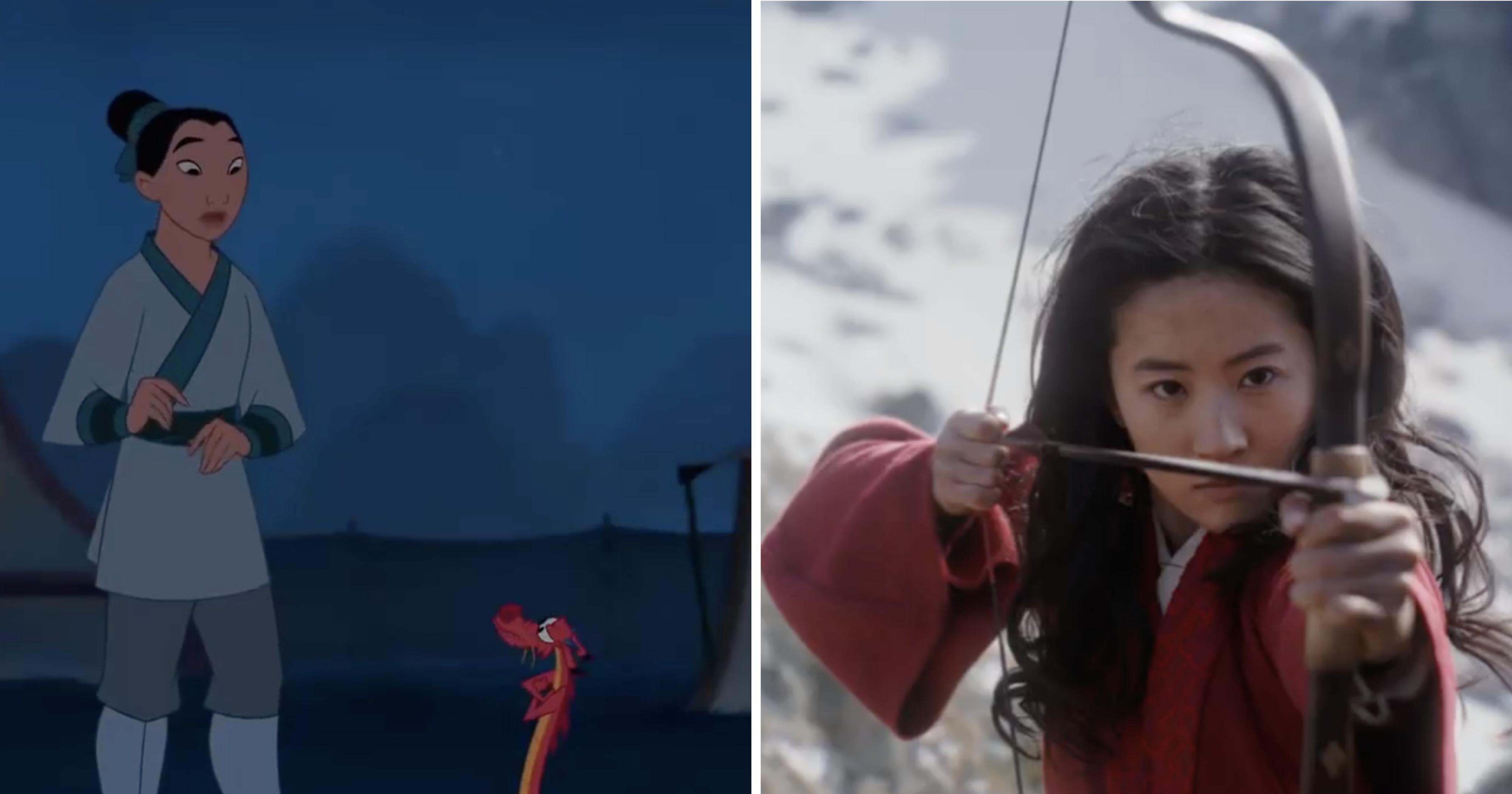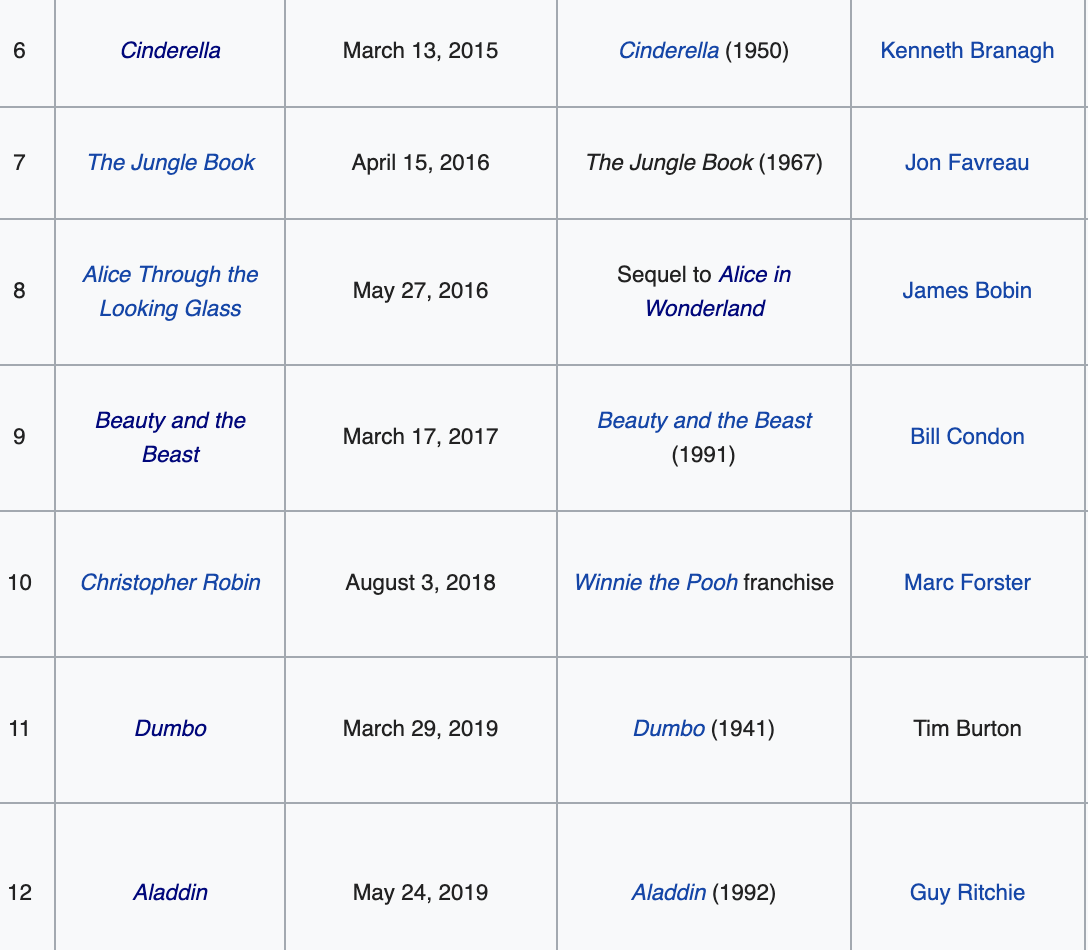There have been a lot of live-action Disney remakes recently.
Which makes sense if you take into account the box office numbers.
The formula appears to be simple enough. Take whatever went on in the animated film and make human beings re-enact them.
They will sing, dance, and converse with their loveable animal sidekicks.
 Screenshot from Aladdin Trailer
Screenshot from Aladdin Trailer
Well, maybe not all the Disney remakes.
The long history of Mulan
Here's the new Mulan trailer.
It has been amazingly popular, garnering over 8 million views in less than a day.
There is however a conspicuous lack of Christina Aguilera mirror singing and Eddie Murphy wisecracking.
That is not an accident. Apparently, the new Mulan might not even be a musical, and crowd favourites like Mushu and Shang have apparently been cut out of the script.
Which begs the question, why?
Disney is a crowd-pleaser first and foremost.
Sure, it introduces certain elements that might divide some folks, and make them question the need for change, but all in all, any Disney vehicle is quite a safe bet for a good time.
Now, this is not to say Mulan won't be a supremely entertaining movie, it very well might be.
But why handicap that effort to entertain by taking away the two aspects of the original movie generally considered to be two of your stronger points?
A movie rumoured to be the most expensive of the remakes would probably need all the mass market appeal, and nostalgia it can accumulate.
Some have pointed out that this is a more faithful remake of the original source material.
Hua Mulan’s story dates to as early as 386 AD frm a folk song & later a transcription in the 6th century. Disney’s live action film is attempting to honor the OG version for Western & Eastern (China) audiences. There is no Mushu or Li Shang in the original so please, shut up! https://t.co/IA4D0uudpJ
— Cindy #BlackLivesMatter Chu (@iamcindychu) July 7, 2019
But then why not make Ariel nearly kill the Prince, before ultimately sacrificing herself like in The Little Mermaid by Hans Christian Andersen back in 1837?
Or make Aladdin Chinese?
Right?
So what makes Mulan the sole exception to the rule. Why strive for historical accuracy, and stay true to the source just for this movie?
China
One very possible reason could be the fact that Mulan is considered quite a big deal in China folklore.
Set in the Northern Wei dynasty, which was from 386 to 534 AD, the legendary female warrior Mulan has been present in Chinese ballads since the fourth century.
You can check out this link for a more thorough breakdown, but basically, there have been a lot of iterations of the enigmatic Hua Mulan character.
The latest being this 2009 film starring Vicki Zhao.
Yup, no talking dragon, no enjoyable training montage set to a ridiculously catchy song, and no lovable band of misfits getting better at this war thing together.
It is very much a serious movie, and the box office returns were serious stuff as well.
Apparently, it made around RMB50 million (S$10 million) in its first six days.
You know which Mulan didn't make serious bank in China?
This one:
The 1998 Mulan made a paltry RMB250,000, which was around S$51,500 back then.
Basically, it was an unmitigated box office bomb in China.
Which was a severe blow to Disney considering they had spent months trying to secure the release of Mulan in China. China has a strict quota on the number of foreign films allowed to be shown a year.
Some of the reasons given for the box office failure, for a movie Disney appeared to anticipate doing well over in China, was the overly Americanised ways that Disney's Mulan behaved in (independence over family) and the "jive-talking" Mushu.
Here is an actual quote from The Baltimore Sun in reference to Murphy's dragon accidentally smashing an ancestral statue.
"A Chinese dragon, however, would never do such a thing, says Lisa Niu, a 28-year-old who works for a foreign-owned telecommunications company. Having lost considerable face, he would be obliged to slink off in embarrassment.
"This is not a Chinese dragon," says Niu, while acknowledging that a dragon brazenly trying to duck responsibility is much funnier than one which is merely embarrassed. 'I can tell the people who designed the dragon are from America.'"
This explains the focus of the movie to be more utilitarian, and take itself and the culture it is portraying more seriously.
You can almost see that invisible checklist being ticked off in Disney's current version of Mulan.
China's box office potential has not gone unnoticed by U.S. filmmakers, and one could argue some of Disney's own casting choices have been motivated by that very market.
So maybe it's not surprising that the new Mulan appears to be markedly different than the 1998 animated film.
Disney might very well still wish to provide the most enjoyable product possible for their audience, and be the crowd-pleaser it is so good at.
It's just a matter of which crowd it's aiming to please.
Image from Mulan 1998 and Mulan 2020
If you like what you read, follow us on Facebook, Instagram, Twitter and Telegram to get the latest updates.


